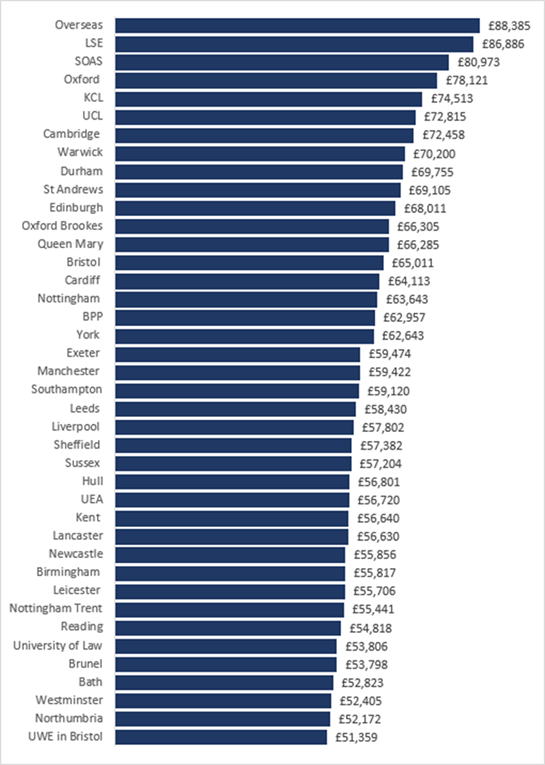
What does your university do for your earning power? We matched 2,500 trainee lawyers' university backgrounds to their eventual earnings.
Antony Cooke, 5 July 2019
The university you attend does determine your employability and earning power, but there are a few twists to the tale: the universities we identified as the best for feeding the legal market with graduates do not produce the highest paid grads.
We took the average NQ salary of graduates from each institution and ranked them. The big shock here is of course that Oxbridge graduates aren’t leading the table – the London universities have toppled them. And looking down, the six universities dominating legal recruitment by numbers (Oxford, Cambridge, Durham, Bristol, Exeter, Nottingham) have all shifted downwards.
Overseas students, with their general cosmopolitanism, are especially attractive to the global firms so it’s easy to see why they earn the most. These results defy expectations because they are influenced by the salaries paid locally. It’s all about concentration and dispersion: the smaller number of SOAS grads all headed for London; the much larger law courses send their graduates across the country.

Over 3 years we interviewed 2,500 trainees, who told us what university they went to and what they studied. We then plotted them against their eventual NQ salary. This sample size represents 20% of all trainees in the UK hailing from the most competitive 139 firms in the country – the firms taking part in our research.
Any university not featuring here didn't supply strong enough data: there a correlation here also with the number of graduates these institutions are supplying to the market.
To see BPP and ULaw here is impressive, given how recently they established undergraduate programmes. This data only represents solicitors, but if we added barristers into it, Oxbridge would get a boost.